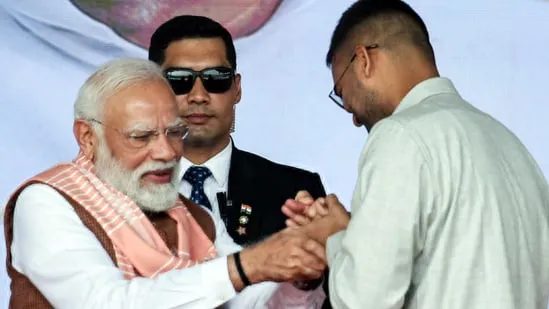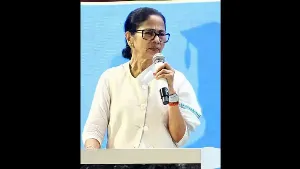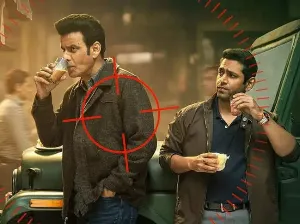Deepak Prakash Sworn in as Bihar Minister amidst Controversy

On Thursday, November 21, 2025, a notable event unfolded at Gandhi Maidan in Patna as Nitish Kumar, the Chief Minister of Bihar, was sworn in for his tenth term. Among the ministers who took their oaths that day was Deepak Prakash, a 36-year-old technology professional, who arrived in casual jeans and a shirt, contrasting sharply with the traditional attire of other ministers. Prakash's appointment has stirred considerable interest and scrutiny, primarily because he did not participate in the recent Bihar Assembly elections.
Deepak Prakash is the son of Upendra Kushwaha, the leader of the Rashtriya Lok Morcha (RLM) and a member of the Rajya Sabha, and Snehlata Kushwaha, who was recently elected as a Member of the Legislative Assembly (MLA) from Sasaram. Despite a strong showing by the National Democratic Alliance (NDA) in the elections, Prakash's inclusion in the cabinet has raised questions about the practice of dynastic politics in Indian governance.
The RLM secured four seats in the elections but was only allocated one ministerial position in Kumar's new cabinet. Speculation had initially centred on Snehlata Kushwaha as the likely candidate for the ministerial role due to her electoral victory. However, Deepak's selection appears to have been a last-minute decision, surprising many observers and critics alike.
In an interview with Aaj Tak, Prakash expressed his astonishment at receiving the ministerial post. "I discovered the news just before the oath-taking ceremony. It came as a surprise to me as well," he commented. Inside sources indicated that discussions surrounding his appointment were contentious, with both Nitish Kumar and Union Home Minister Amit Shah reportedly hesitant about Kushwaha's proposal for his son to join the ministry.
Despite this, Upendra Kushwaha managed to secure the position for Deepak, igniting debates within political circles regarding nepotism. Opposition leaders have voiced their concerns, labelling this development as an example of dynastic politics, which continues to plague Indian governance.
Deepak Prakash is not a newcomer to the political landscape, having grown up observing his father's political career. After completing a Bachelor of Technology degree in Computer Science from the Manipal Institute of Technology in 2011, he spent four years working in the IT sector. In his statements, he emphasised his gradual involvement in politics over the past few years, asserting, "I have been active in the party for the last four to five years."
Addressing his unconventional attire during the swearing-in ceremony, Prakash stated, "Politics should resonate with the common people. I wore what was comfortable, and I will continue to do so for the next five years. Whether I switch to traditional attire later, time will tell, but comfort comes first." This casual approach has been interpreted by some as an attempt to connect with the electorate.
For Prakash to retain his ministerial role, he must be elected to the Bihar Legislative Assembly or nominated to the Bihar Legislative Council within six months. Given the political backing from his family and party, this task is expected to be manageable.
As the political landscape in Bihar continues to evolve, Deepak Prakash’s unexpected entry into the cabinet serves as a reminder of the intertwined nature of family legacy and political power in India, raising questions about the future of governance in the state.

India's New Labour Codes Enhance Worker Protections and Benefits

Tejas Fighter Jet Crash in Dubai Claims Life of Pilot Namansh Syal

BJP Criticises Mamata Banerjee Amid Kolkata Earthquake Tremors

The Family Man Season 3: Release Date, Cast, and Plot Details





